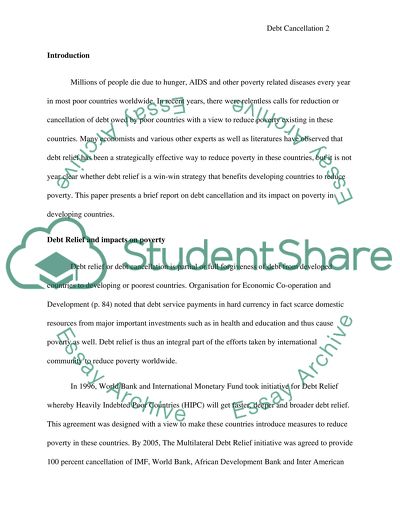Cite this document
(“Debt Cancellation and its impact on poverty in developing countries PowerPoint Presentation”, n.d.)
Retrieved from https://studentshare.org/finance-accounting/1395646-debt-cancellation-and-its-impact-on-poverty-in-developing-countries
Retrieved from https://studentshare.org/finance-accounting/1395646-debt-cancellation-and-its-impact-on-poverty-in-developing-countries
(Debt Cancellation and Its Impact on Poverty in Developing Countries PowerPoint Presentation)
https://studentshare.org/finance-accounting/1395646-debt-cancellation-and-its-impact-on-poverty-in-developing-countries.
https://studentshare.org/finance-accounting/1395646-debt-cancellation-and-its-impact-on-poverty-in-developing-countries.
“Debt Cancellation and Its Impact on Poverty in Developing Countries PowerPoint Presentation”, n.d. https://studentshare.org/finance-accounting/1395646-debt-cancellation-and-its-impact-on-poverty-in-developing-countries.


